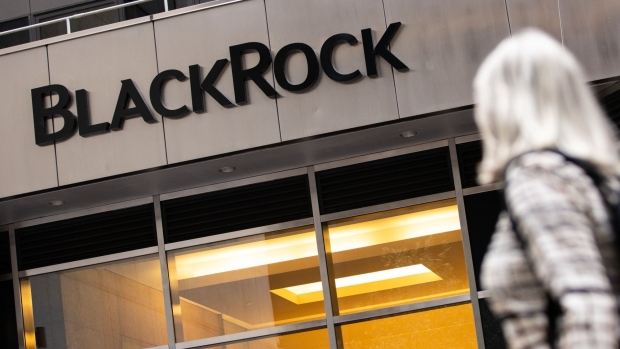Oct 7, 2022
ESG Stock Watch: BlackRock in the Middle, Pepsi’s New Farms
, Bloomberg News

(Bloomberg) -- Welcome to the first edition of ESG Stock Watch, a weekly story examining the environmental, social and governance risks -- and opportunities -- that companies around the globe encounter.
BlackRock may face investor questions on this week’s earnings call, amid increasing scrutiny from US politicians over its energy investments. Elsewhere, Pepsi struck a farming partnership to mitigate its carbon impact, while US Bancorp successfully avoided backlash from West Virginia’s treasurer for its stance on fossil fuels.
- To subscribe to Bloomberg’s ESG coverage, see NSUB ESG.
In the week ahead, about 28 companies with available Bloomberg ESG data are expected to host earnings calls. Here are some highlights to look out for:
Wednesday: PepsiCo (PEP US), set to hold its call before the bell, last month partnered with Archer Daniels Midland Co. (ADM US) to implement “regenerative” farming on two million acres of corn, soy and wheat operations in the US by 2030. The measure could eliminate 1.4 million metric tons of greenhouse gases, as they join other major food companies, including General Mills, Cargill and Walmart, in implementing regenerative agriculture, which focuses on techniques that enrich the soil and return carbon to the ground. The shift could also help the companies handle extreme weather events, including historic droughts, and the energy crisis impacting fertilizers, said Bloomberg Intelligence senior ESG analyst Gail Glazerman. “Succeeding in this initiative could ensure a more resilient supply chain in the long run.” Despite the push by Pepsi and others, US consumers are still unfamiliar with the concept of regenerative farming and have been unwilling to pay premiums to buy food grown using the method.
Thursday: BlackRock’s (BLK US) third-quarter results and conference call are due premarket. The world’s largest asset manager found itself at the center of controversy this quarter, as its commitment to weighing ESG considerations in an investment’s risk assessment exposed the firm to political scrutiny in the US. Over the past three months, Republican politicians in both West Virginia and Texas have accused BlackRock of boycotting investments in fossil fuel companies, with the former state moving to restrict the company’s access to banking contracts in retaliation. BlackRock denied the claims that it avoids coal or oil companies in both instances, citing over $100 million invested in Texas energy companies. Still, last week, Louisiana pulled nearly $800 million from BlackRock funds, saying the firm’s views are damaging to the state’s energy industry.
Pressure is now coming from Democrats, with New York City’s comptroller “re-assessing” its business with BlackRock, citing an “alarming” contradiction between the company’s vocal support of environmental initiatives and apparent reluctance to push corporations on their green plans. Politicians’ ESG fixation may be causing some passive managers to be less supportive of shareholder proposals, according to Bloomberg Intelligence Senior ESG analyst Rob Du Boff, with BlackRock backing just 19% of “E” and “S” recommendations this year, down from 39% and 35%, respectively, in 2021.
Friday: US Bancorp (USB US) was among six financial institutions to receive notices from West Virginia’s treasurer in June, warning that it may be shut out from state banking contracts for its stance on fossil fuels. The bank ultimately avoided restrictions, eliminating policies against financing coal-related activities and saying that its environmental and social policies do “not prohibit relationships” with fossil fuel companies. The bank’s ability to avoid restrictions demonstrates the willingness of some smaller financial institutions to go after business passed over by their ESG-conscientious peers, according to BI’s Du Boff. For example, Jefferies Financial Group became the unlikely winner of a record setting municipal-bond deal in Texas, boasting that it has never “run afoul of any Republican-backed state laws seeking to punish Wall Street,” in its pitch to the state.
Further Reading:
- Ian Latest: Florida Toll From Storm Rises; Biden Visit Planned
- Hurricane Ian’s Negatives Manageable With Some Upsides Likely: BI
- EV Demand Is Reviving US Manganese Mining After Decades
- Fossil-Fuel Financing Poses Growing Risks to Biggest Banks
- Green Bonds Defy September Sales Slowdown to Hit Four-Month High
- Greenwashing Enters a $22 Trillion Market Companies Depend On
- Climate-Vulnerable Nations Step Up Loss-and-Damage Demands
©2022 Bloomberg L.P.





